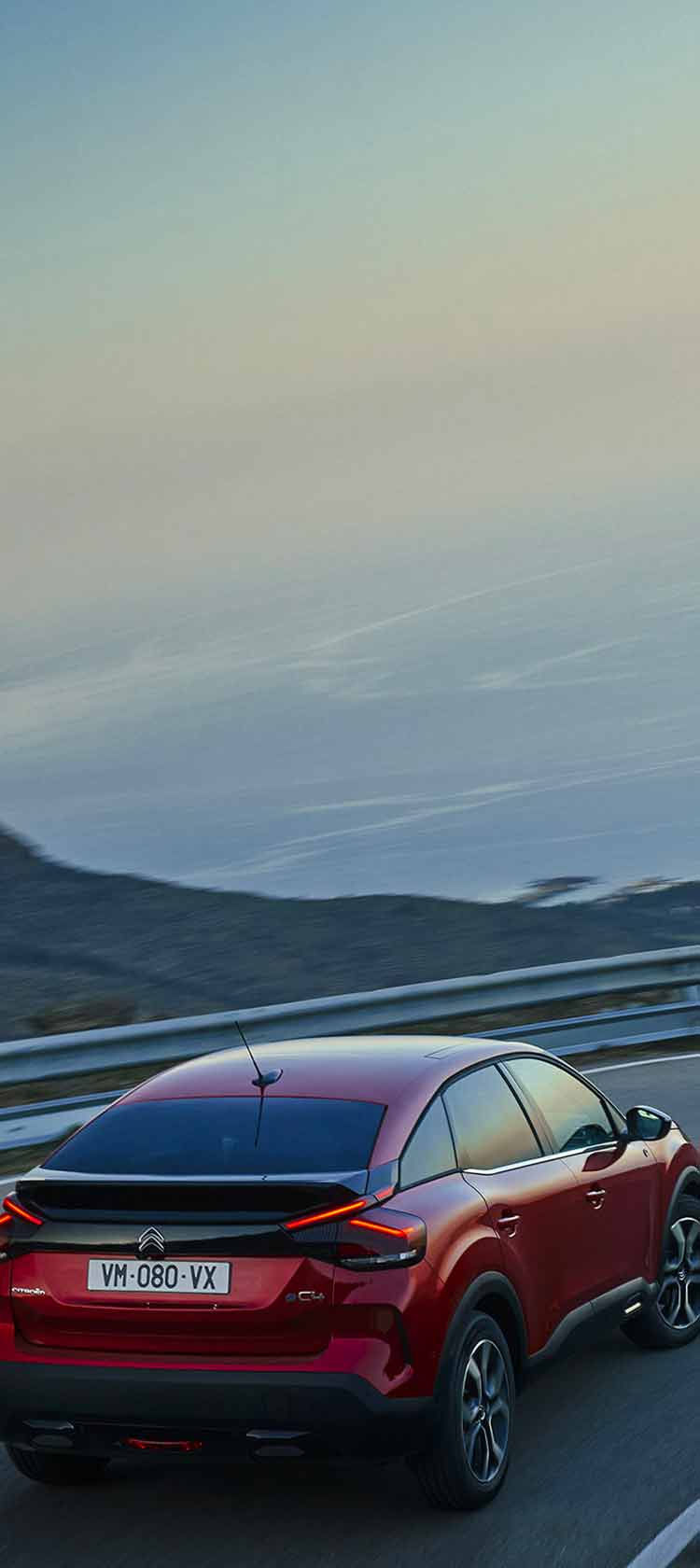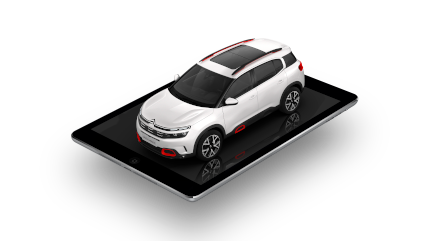C5 AIRCROSS
Partners of all active lives
A benchmark in terms of comfort, space and versatility, C5 Aircross has now been given a makeover to express greater strength and refinement. It is available in hybrid, plug-in hybrid, petrol and diesel versions.
C3 AIRCROSS
Designed to support your active lives
Citroën C3 Aircross goes upmarket with a new front end that gives it more character and offers 70 customization combinations. It increases its comfort experience thanks to the Advanced Comfort seats, and retains its modularity, its roominess and its reference brightness.
Ë-C4 X ELECTRIC AND C4 X
Discover ë-C4 X Electric and C4 X. All power sources have identical characteristics in terms of comfort, design and interior practicality.
Available to order!
NEW RANGE OF COMMERCIAL VEHICLES
Renewal of the range
Discover our widest range of commercial vehicules on the market.
Specially designed for professionals and adapted to every need.
EACH STYLE ITS RANGE
In the city or country, alone or with the family, enjoy all the versatility and comfort of the family hatchbacks in the Citroën range. The new C4 is now available in ëlectric.
You might be a city dweller, looking for the most convenient and stylish small car.
Discover the Citroën SUV offensive with the stylish and bold C3 Aircross and C5 Aircross. C5 Aircross SUV is now available in Hybrid.
You might be looking for a family car that can grow along with your family, with all the space you need for any holiday or day to day activity.

Buy your car
To find your Citroën you have the choice!
Buy your new car online or from stock, you can also configure it as you wish.

Maintain your car
Citroën Services offers you a wide range of services to maintain and repair your car

VALUE MY CAR
Have your current car taken back, whatever its brand, and leave with a new Citroën.

CITROËN NEWS












